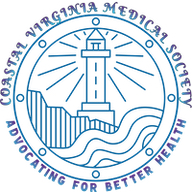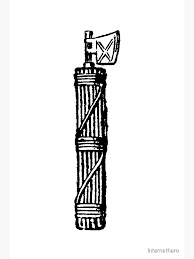And Surgeons
CVMS Bulletin
Volume 1: Issue 4
April 2023

"In no relationship is the physician more often derelict than in his duty to himself."
- Sir William Osler 1902
Welcome to the fourth edition of the CVMS Bulletin bringing you updates on the status of healthcare in Eastern Virginia. We hope you find it interesting, informative and enjoyable. Please let us know if there is anything we can do to make it better.

Physician Burnout
Physician burnout is a serious problem that affects healthcare professionals worldwide. It is a state of emotional, mental, and physical exhaustion caused by prolonged and intense exposure to work-related stressors. Burnout can have a significant impact on physicians' personal and professional lives, leading to reduced job satisfaction, decreased quality of patient care, and higher rates of medical errors.
There are several factors that contribute to physician burnout, including long work hours, high workload, administrative burdens, and a lack of control over their work environment. Additionally, the emotional toll of caring for patients who are critically ill or suffering from chronic conditions can take a significant toll on physicians' mental health.
One of the biggest challenges of addressing physician burnout is that it is often underreported and stigmatized within the medical community. Physicians may feel ashamed or embarrassed to admit that they are struggling with burnout, and fear that doing so may negatively impact their careers. As a result, many physicians suffer in silence, leading to a further deterioration of their mental health and job satisfaction.
The consequences of physician burnout are significant and far-reaching. Burnout can lead to decreased patient satisfaction, increased healthcare costs, and higher rates of medical errors. Physicians who are burned out are also more likely to experience depression, anxiety, and substance abuse, and may have higher rates of suicide than the general population.
To address physician burnout, healthcare organizations must take a multifaceted approach that includes addressing the root causes of burnout and providing physicians with the tools and resources they need to manage stress and build resilience. This may include reducing workload, improving work-life balance, and providing access to mental health support and resources.
Additionally, physicians can take steps to mitigate burnout on an individual level. This may include practicing self-care, setting boundaries, and seeking out support from colleagues, friends, and family. It is also essential for physicians to advocate for themselves and prioritize their mental health, even in the face of stigma or resistance from colleagues or superiors.
In conclusion, physician burnout is a complex and multifaceted issue that requires a collaborative effort from healthcare organizations, physicians, and society as a whole to address. By prioritizing physician well-being and providing the necessary support and resources, we can work to prevent burnout and ensure that healthcare professionals are equipped to provide high-quality care to their patients for years to come.
Learn More... "Doctors Are Losing Their Calling...The sanctity of the medical profession has been lost to corporate centralization and burnout." - By H. Stanley at Mass General Brigham in Boston.
If you need help with this, please send us an email right away to cvms@medicalsociety.org, or call 757-816-8399 to find out what resources are available to you.
How to Treat Physician Burnout

Physician burnout is a significant problem that affects the health and wellbeing of healthcare providers, as well as patient care. Fortunately, there are various resources and treatments available to help address this issue.
Here are some potential options for resources and treatment for physician burnout:
- Mental health professionals: Mental health professionals, such as therapists, psychologists, and psychiatrists, can help physicians deal with burnout. They can provide therapy, medication, and other forms of support to help them manage stress, anxiety, and other mental health issues.
- Employee Assistance Programs (EAPs): Many healthcare organizations have EAPs that offer confidential counseling, financial advice, and other resources to employees. These programs are often free of charge to employees and their families.
- Wellness programs: Some healthcare organizations offer wellness programs to their employees, which may include stress management classes, meditation sessions, yoga classes, and other activities that can help promote self-care and relaxation.
- Peer support groups: Physicians may find it helpful to connect with others who are experiencing similar challenges. Peer support groups can provide a safe space for healthcare providers to share their experiences, discuss coping strategies, and provide emotional support to one another.
- Time off: Taking time off from work can be an effective way to address burnout. Healthcare organizations may offer sabbaticals, extended vacations, or other forms of time off to help physicians recharge and regain their sense of purpose.
- Leadership training: Healthcare organizations can provide leadership training to managers and administrators to help them identify and address factors that contribute to burnout, such as excessive workload, poor work-life balance, and lack of autonomy.
- Flexible work arrangements: Flexible work arrangements, such as part-time schedules, telecommuting, and job sharing, can help physicians balance their work and personal lives and reduce stress.
It is essential to address physician burnout to ensure that healthcare providers are healthy and able to provide the best possible care to their patients. Healthcare organizations can implement various resources and treatments to support their physicians and help them avoid burnout.
Reducing the Documentation Burden
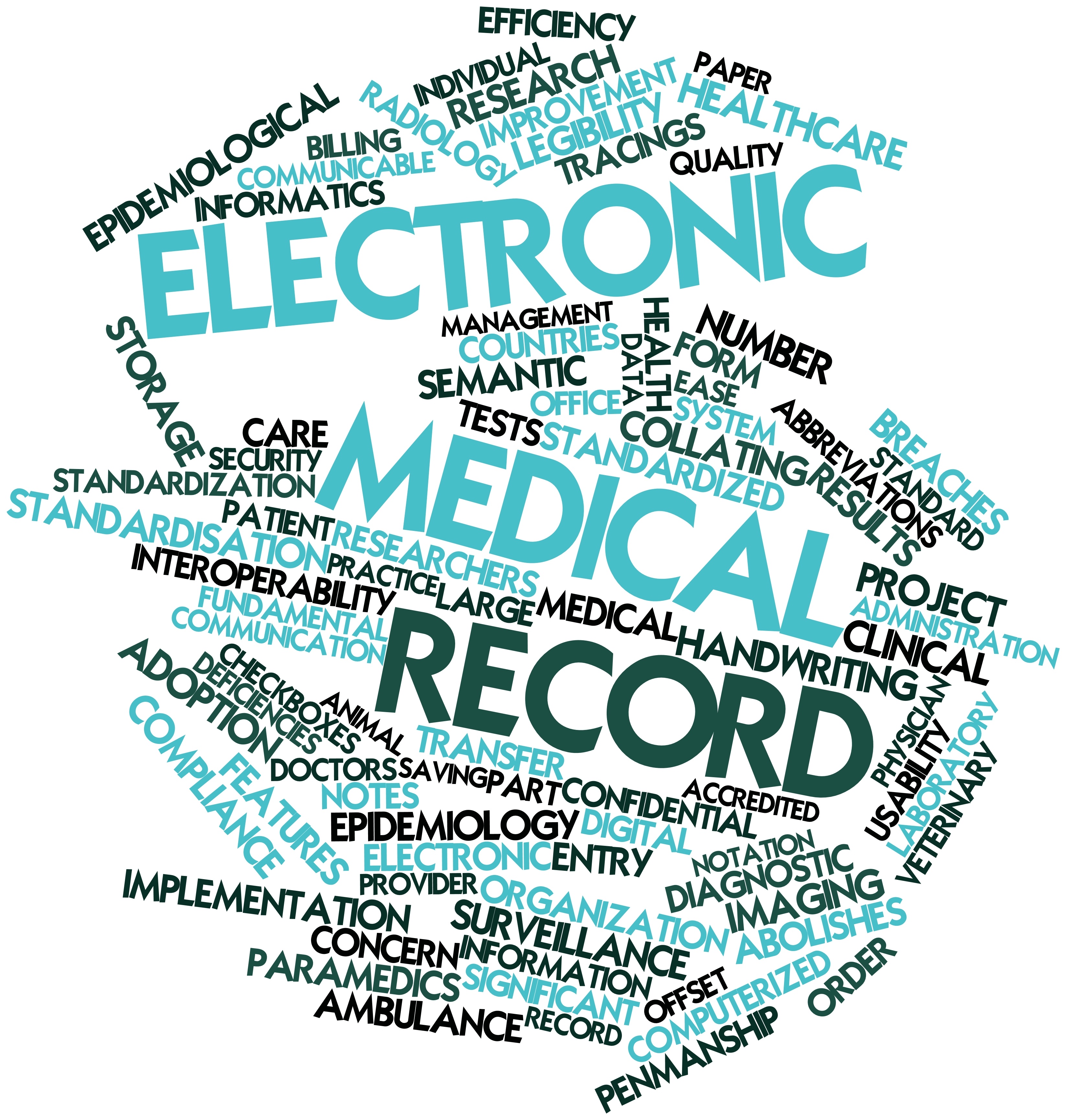
Electronic medical records (EMRs) have revolutionized the way healthcare providers document patient care. However, with the increased use of EMRs, the burden of documentation has also increased significantly. Providers spend hours documenting patient care, which can lead to burnout and impact the quality of care. In this blog post, we will discuss some strategies to reduce the burden of EMR documentation.
Customize EMR Templates:
EMR templates are pre-built forms that providers use to document patient care. Providers can customize these templates to match their workflow, making documentation more efficient. By customizing templates, providers can quickly document patient care without searching through the EMR for the appropriate fields.
Utilize Scribes:
A scribe is a trained professional who accompanies the provider during patient visits and documents the care in the EMR. Providers can delegate documentation tasks to scribes, freeing up their time to focus on patient care. Scribes can also help reduce errors in documentation and ensure all required fields are completed.
Use Voice Recognition:
Voice recognition technology can be used to dictate patient care notes directly into the EMR. This can save time on documentation and reduce the risk of errors in transcription. Providers can speak their notes while completing a patient visit, and the EMR will automatically transcribe the notes.
Limit Data Entry:
Providers should only document what is necessary for patient care. Too much documentation can lead to information overload and distract from the actual care being provided. Providers should focus on documenting only the information that is clinically relevant to the patient's care.
Train Staff on Efficient Documentation:
Efficient documentation can be taught to staff by providing training on EMR workflows and shortcuts. Providers should work with their staff to develop efficient documentation practices that streamline the process while still capturing all necessary patient care information.
In conclusion, reducing the burden of EMR documentation requires a multifaceted approach that includes customizing templates, utilizing scribes, using voice recognition, limiting data entry, and training staff on efficient documentation. By implementing these strategies, providers can reduce documentation burden and spend more time providing quality patient care.
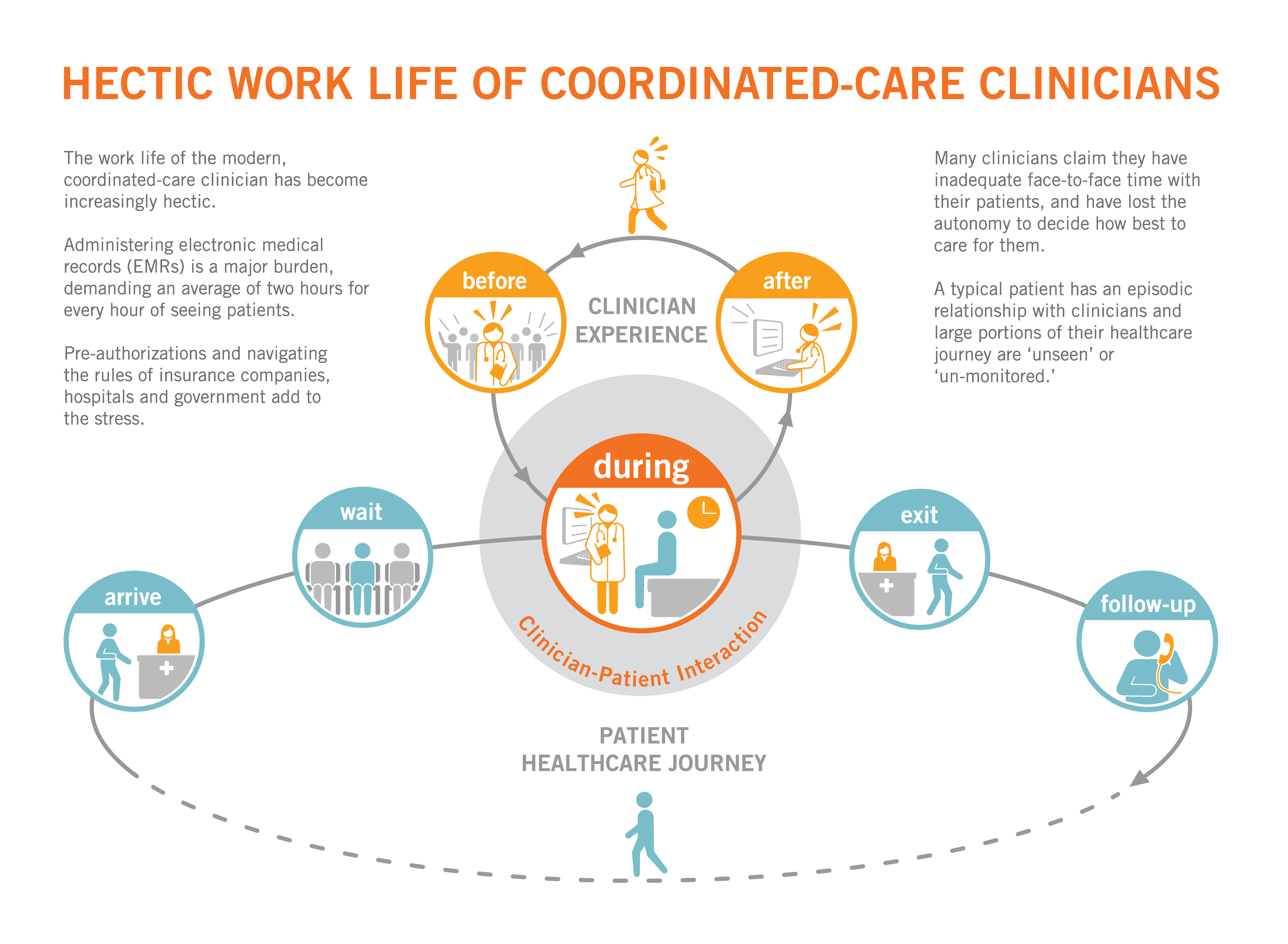
Leadership in Healthcare

In any healthcare system, physicians must play a critical role in ensuring that patients receive high-quality care. However, being a physician is not just about providing medical treatment to patients. In today's complex and impaired healthcare landscape, physicians must also be leaders who can guide the system toward better outcomes.
But aren't we busy enough already? Why should we get involved? Can't other people do this?
Physicians have a unique perspective
As the individuals who are closest to the patients, physicians and healthcare workers have a unique perspective on the healthcare system. They see the problems that are barriers to proper care. They understand the challenges that patients face, and they see the impact of policy decisions on a daily basis. Some of these decisions are good, some not so good. By sharing their perspectives and experiences, physicians can help to shape the healthcare system and ensure that it meets the needs of patients. By leaving it all to the administrators and insurance companies, we are shortchanging ourselves and our patients, and further contributing to the demise of the system.
Physicians need to advocate for their patients
Physicians are in a unique position to advocate for their patients. They can use their expertise and credibility to influence policy decisions and advocate for better healthcare outcomes. For example, they can work with policymakers to promote the use and availability of evidence-based treatments and ensure that patients have access to the care they need. They can help to get rid of outdated policies that are causing more harm than good now. As a group, they can push for improvements in the system that would directly improve patient care, reduce patient costs, help to get rid of bureaucratic inefficiencies that are barriers to better patient care.
Physicians can drive quality improvement
Physicians have a crucial role to play in driving quality improvement in the healthcare system. They are often the ones who are responsible for implementing new treatments and procedures, and they can use their expertise to identify areas where improvements can be made. By working with other healthcare professionals, physicians can develop and implement quality improvement initiatives that can lead to better patient outcomes. They can find and correct problems in the system that could cause medical errors.
Physicians need to lead interdisciplinary teams
In today's healthcare system, interdisciplinary teams are becoming increasingly important. Physicians must work closely with other healthcare professionals, such as nurses, social workers, and pharmacists, to ensure that patients receive comprehensive care. By taking on leadership roles, physicians can help to build and lead these interdisciplinary teams, ensuring that all members work together to provide the best possible care. We as a medical society could develop interdisciplinary committees to work with other allied medical professions. The more we work together on these problems, the better the outcomes will be for everyone.
Physicians need to be advocates for healthcare reform
Physicians can be powerful advocates for healthcare reform. They have firsthand experience with the shortcomings of the healthcare system and can use their knowledge and expertise to push for change. By working with policymakers and other stakeholders, physicians can help to shape the future of healthcare and ensure that it meets the needs of patients.
Physicians need to be advocates for themselves
Burnout and depression are in epidemic proportions right now. We can improve conditions for ourselves by reducing paperwork, figuring out ways to detach ourselves from EHR obligations. Improving physician workflow would improve patient's access to care. We should not have to do prior authorizations and call for peer to peer reviews of tests or medications that we order for our patients. Before we allow the system to make changes that increase our workload, we need to see hard evidence that it will either improve our own conditions or that of our patients. We also need to be compensated for any increased workload required by an administrator or insurance company. We need to take the burden off the ER departments, get more hospital beds. Improving cost transparency between inpatient and outpatient procedures can reduce costs dramatically, but we have to push for these things and we have to have leaders that are willing to step up and organize other physicians that are willing to help.
In conclusion, physicians need to take back some of the leadership in the healthcare system. We have declined to be involved for decades, which is why our system is suffering today. Our ability to lead has been minimized and decisions are being made by business people who have different goals and perspectives than we do. By taking on leadership roles, physicians can use their unique perspective, advocate for their patients and for themselves, drive quality improvement, lead interdisciplinary teams, and advocate for healthcare reform. Ultimately, this can and will lead to better outcomes for patients and a more effective and efficient healthcare system. But we must get involved now.
If you are at all interested in a leadership role in the Coastal Virginia Medical Society and if you want to make a difference in what happens to healthcare in eastern Virginia, please call this number or write to the following email address:
757-816-8399
cvms@cvmedicalsociety.org

News from MSV
2023 Legislative Wrap-up:
After 45 days of committee meetings, legislative debate, lobby days, and budget conversations, the General Assembly session of 2023 has adjourned Sine Die. During this session, MSV:
- Tracked over 400 bills and budget amendments
- Hosted two lobby days and nine student lobby days with VTC, VCOM, EVMS, UVA, LUCOM, and VCU with almost 200 members in attendance, collectively
- MSV members sent almost 2,800 Voter Voice messages to all 140 members of the General Assembly in support or opposition to important legislation affecting the practice of medicine
- Read the full legislative wrap-up on our website, and see how you can continue advocating with us year-round.
CVMS Event Board
What's New?
Recent Articles
-
CVMS-Bulletin-January-2026
Jan 25, 26 12:41 PM
The official newsletter of the Coastal Virginia Medical Society -
CVMS-Bulletin-November-2025
Nov 28, 25 08:23 AM
CVMS Newsletter - Medical News and Commentary -
CVMS Membership Drive 2025
Oct 16, 25 10:53 AM
Information about the membership importance and benefits.
More Links
Continuing Education Requirements from the Board of Medicine
Informed CMEs for Virginia Physicians
Get Stroke Smart Materials for your practice.
Severn Leadership Group Fellows Program
Contact Us
Here is your chance to let us know what is on your mind. What problems with healthcare in this area are you most concerned about? What benefit or service can we provide to help you the most with regard to your well being or that of your patients?
Please be sure there are no typos in your email address. Otherwise we won't be able to reply.
Just for Fun...
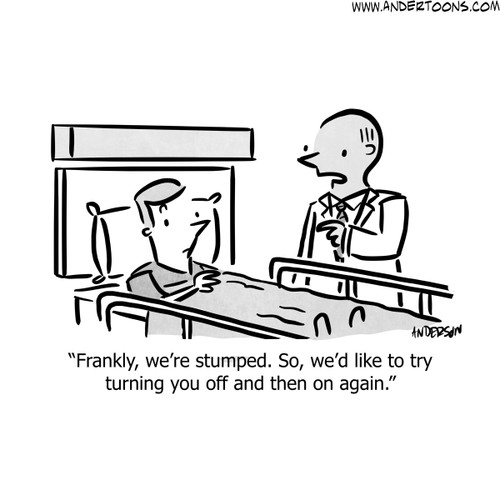
We hope you enjoyed this new edition of the CVMS Bulletin. If you have any questions, concerns or comments, let us know at cvms@cvmedicalsociety.org. If you wish to provide an article or your own story to put in this newsletter, send it in. Watch the "What's New" link in the upper left Navigation Menu for updates in between the monthly newsletters. Let us know if you wish to be involved in the CVMS organization process or if you know of any resources or benefits we could potentially provide for the membership.
Thank you for subscribing to the CVMS Bulletin.




Recent Articles
-
CVMS-Bulletin-January-2026
Jan 25, 26 12:41 PM
The official newsletter of the Coastal Virginia Medical Society -
CVMS-Bulletin-November-2025
Nov 28, 25 08:23 AM
CVMS Newsletter - Medical News and Commentary -
CVMS Membership Drive 2025
Oct 16, 25 10:53 AM
Information about the membership importance and benefits.
Sign Up for the New CVMS Bulletin
Things You Need to Know
News Releases
from the
Virginia Beach Health Department
Norfolk Public Health Department
Chesapeake Health Department
The Roman Fasces was a symbol of strength and power occurring as a result of many binding together. It was made of multiple elm or birchwood rods about 5 feet long tied together and sometimes including an axe. It was carried by attendants to soldiers or powerful figures in ancient Rome. For us, it symbolizes that we are stronger and more powerful if we bind together in supporting our goals.
Medical Society of Virginia Updates
Upcoming Virtual CME Activities from MSV:
HER2-Positive Breast Cancer Treatment
COVID-19 Vaccine Information
Pfizer COVID-19 Training Sessions and Additional Vaccine Information
Includes a section on what to tell your patients
VDH Clinician Letters - COVID-19 updated from the Virginia State Health Commissioner

